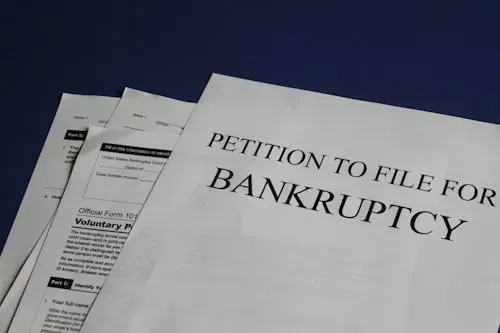What Happens to Your Assets After You Die?

Ever pondered what becomes of your possessions once you're gone? It's a critical yet often overlooked aspect of life's planning. Here, we simplify the probate process, shedding light on the journey your assets take after your departure. We cover the essentials: the significance of wills, the executor's role, how assets get distributed, and the potential challenges that may arise. Armed with this guide, you'll gain the knowledge to ensure your estate is managed precisely as you envision. Let's dive into the nitty-gritty of estate planning, blending clarity with depth to navigate post-mortem asset management.
Immediate Steps After Death
When someone dies, a series of legal and financial actions kick off to ensure their assets are managed correctly. The process may seem daunting, but understanding these initial steps can make everything that follows much smoother.
1. Obtain a Legal Pronouncement of Death: This official step is crucial for everything that comes next, from arranging the funeral to handling the deceased's assets.
2. Secure the Property: Lock up and secure the deceased's home, vehicle, and other significant properties to prevent theft or damage.
3. Locate the Will: Finding the will is a top priority. It guides the probate process, outlining the deceased’s wishes for their assets and naming the executor.
4. Notify Relevant Parties: Banks, government agencies, and other institutions need to be informed of the death to halt payments and start the process of transferring or closing accounts.
5. Begin the Probate Process: If the deceased left a will, the named executor takes charge. Without a will, the court appoints an administrator to manage the estate.
These steps form the foundation for everything that follows in the probate process. By tackling them promptly and efficiently, you ensure the deceased’s assets are protected and their wishes respected.
What's Probate?
The term "probate" might sound daunting, but it's essentially the system that ensures your belongings are passed on correctly after you've gone. Here's a straightforward breakdown:
1. Defining Probate: At its simplest, probate is a court-supervised procedure that distributes your assets post-death. It's about validating your will, settling debts, and making sure your belongings reach the right hands.
2. The Power of a Will: Having a will streamlines probate, detailing who inherits your assets and appointing a trusted executor. Without one, state laws split your estate, possibly against your wishes.
3. Executor: The Critical Player: Named in your will, the executor steers the probate ship—gathering assets, clearing debts, and divvying up the estate. Their role underscores the need for a reliable appointee.
4. Timeline and Expenses: Expect probate to be neither quick nor free. It's a process that can stretch over months or years, with costs that can diminish the estate's value, prompting some to seek probate alternatives.
Grasping the basics of probate equips you to navigate the aftermath of a loss more smoothly. While it's a complex journey, understanding its outline and implications makes a world of difference.
The Role of the Will
At the heart of any discussion about post-mortem asset management is the will—a document that, while simple in concept, plays a pivotal role in the probate process. Here’s a closer look at why it's so crucial:
1. Directing the Distribution: A will is your voice after you've passed, specifying who receives your assets. It's the blueprint that guides the executor and the court in distributing your estate according to your wishes.
2. Choosing Your Executor: More than just a list of who gets what, a will also lets you appoint your executor. This person will manage your estate's affairs, from paying off debts to ensuring your beneficiaries receive their shares. Picking someone responsible and trustworthy is key.
3. Avoiding State Decisions: Without a will, you leave the distribution of your assets up to state laws—a process known as intestacy. This often results in a division that might not align with your preferences, affecting loved ones and potentially leading to familial conflicts.
4. Simplifying the Probate Process: While having a will doesn’t eliminate probate, it can make the process smoother and quicker. A clear will can reduce disputes and confusion, helping to ensure a straightforward resolution of your estate.
A well-crafted will is more than a document; it's a final act of care for your loved ones, providing clarity and direction during a difficult time.
Executor or Administrator Takes Charge
Once the will is found and the probate court gets involved, the executor (named in the will) or administrator (appointed by the court in the absence of a will) steps into the spotlight. This role is crucial for steering the estate through the probate process. Here's what they do:
1. Gathering Assets: First up, the executor or administrator needs to locate and secure all the deceased's assets. This can range from bank accounts to real estate, ensuring nothing is overlooked.
2. Handling Debts and Taxes: Before any asset distribution, outstanding debts and taxes must be settled. The executor assesses the estate’s finances, pays off debts, and ensures tax obligations are met.
3. Navigating Legal Waters: The probate process is laden with legal requirements. The executor works closely with attorneys to ensure all legal filings are accurate and timely, avoiding potential pitfalls.
4. Distributing Assets: With debts paid and legalities sorted, the executor then distributes the remaining assets to the beneficiaries as outlined in the will. If there's no will, the administrator follows state laws to divide the estate.
5. Closing the Estate: Finally, once all debts are paid and assets distributed, the executor or administrator seeks the court’s approval to close the estate, marking the end of the probate process.
The executor or administrator's role is a blend of fiduciary duty, legal navigation, and meticulous administration. It’s a position that demands trustworthiness, organizational skills, and patience.
Valuing Your Estate
Before your assets can be distributed, your entire estate must be valued. This crucial step determines how much the estate is worth and informs the distribution process. Here's a breakdown of how it's done:
1. Inventory of Assets: The executor compiles a comprehensive list of all assets, including bank accounts, real estate, investments, and personal property. This inventory serves as the basis for the estate's valuation.
2. Professional Appraisals: For assets like homes and valuable personal items, professional appraisals might be necessary to determine their current market value. This ensures an accurate assessment of the estate's worth.
3. Assessing Debts and Liabilities: Part of valuing the estate involves tallying up any debts and liabilities. These will be settled from the estate before any distribution to beneficiaries.
4. Calculating Net Value: After assets are appraised and debts tallied, the net value of the estate is calculated. This figure represents the total value of assets that will be distributed to heirs and beneficiaries.
The valuation of your estate is a detailed process that requires accuracy and fairness. It ensures that the distribution of assets is based on the real value of the estate, making it a cornerstone of the probate process.
Distributing the Assets
After the estate's value is determined and debts settled, the next step is the distribution of assets to the heirs and beneficiaries. This phase is where the wishes outlined in the will—or, in its absence, state laws—come into play. Here’s how it unfolds:
1. Following the Will's Instructions: If there's a will, the executor distributes the assets according to its directions. This can include specific bequests (like heirlooms, jewelry, or cash amounts to certain individuals) and the residual estate to other named beneficiaries.
2. Intestate Succession: Without a will, the estate enters intestate succession, where assets are distributed according to state law. Typically, this means the closest relatives (spouses, children, parents, siblings) receive the assets, in proportions defined by the law.
3. Transferring Ownership: For assets to change hands, legal documents—such as deeds for real estate or titles for vehicles—must be officially transferred to the new owners. This legal process solidifies the beneficiaries' new ownership.
4. Special Considerations for Jointly Owned Assets and Designated Beneficiaries: Assets like jointly owned properties or accounts with a designated beneficiary (such as life insurance policies or retirement accounts) usually bypass the probate process and go directly to the co-owner or named beneficiary.
5. Resolving Disputes: Unfortunately, disputes among heirs or beneficiaries can arise. The executor's role includes mediating these conflicts, possibly with the help of legal counsel, to ensure the estate is distributed as peacefully and fairly as possible.
The asset distribution phase is a mix of meticulous planning, legal formalities, and, sometimes, delicate negotiation. It's the culmination of the probate process, where the deceased’s wishes are finally realized, and beneficiaries receive what has been left to them.
Avoiding Probate: Can It Be Done?
While the probate process is a common legal pathway for distributing a deceased person’s assets, many seek ways to avoid it due to its potential length, cost, and complexity. Here’s how some assets can bypass probate, offering a smoother transition to beneficiaries:
1. Living Trusts: A living trust is a powerful tool for avoiding probate. You transfer your
assets into the trust during your lifetime, and upon your death, these assets are passed directly to the beneficiaries named in the trust, without the need for probate.
2. Joint Ownership: Assets owned jointly, with rights of survivorship, automatically pass to the surviving owner(s) when one owner dies. This applies to real estate, bank accounts, and other assets held jointly.
3. Payable-on-Death (POD) and Transfer-on-Death (TOD) Accounts: Financial accounts and securities that have a designated beneficiary (POD for bank accounts and TOD for securities and real estate in some states) transfer directly to that beneficiary upon your death.
4. Life Insurance Policies: The proceeds from life insurance policies are paid directly to the beneficiaries listed on the policy, bypassing the probate process.
5. Retirement Accounts: Like life insurance, retirement accounts (such as IRAs and 401(k)s) usually have designated beneficiaries and are transferred directly to those individuals without going through probate.
Implementing these strategies can significantly simplify the asset transfer process, making it quicker and less costly for your beneficiaries. However, it's essential to consider your unique situation and possibly consult with an estate planning professional to determine the best approach for you.
Legal Assistance May Be Necessary
Even with careful planning, the complexities of estate and probate laws can make legal assistance invaluable. Here are scenarios where consulting with a probate or estate planning attorney can be particularly beneficial:
1. Complicated Estates: If your estate includes a variety of assets, especially those with complex rules like businesses or commercial real estate, legal guidance can ensure everything is handled correctly.
2. Disputes Among Beneficiaries: When heirs or beneficiaries disagree over the will’s terms or asset distribution, a lawyer can mediate and help resolve conflicts, potentially avoiding costly and lengthy court battles.
3. Avoiding Probate: An attorney can offer strategies to minimize your estate’s exposure to probate or bypass it altogether, such as setting up living trusts or ensuring proper beneficiary designations.
4. Navigating State Laws: Estate and probate laws vary significantly by state. Professional legal advice can help you navigate these differences, ensuring your estate plan complies with local regulations.
5. Updating Estate Plans: Life changes—marriages, divorces, births, and deaths—can all impact your estate plan. An attorney can help update your documents to reflect your current wishes and circumstances.
While DIY options exist for estate planning, the peace of mind that comes with professional legal assistance can be invaluable, ensuring your estate is managed and distributed according to your wishes with minimal stress on your loved ones.
Conclusion
Wrapping up, we've untangled the complexities of what happens to your assets after you pass away. From breaking down the probate process to understanding wills and exploring how to bypass probate, this guide arms you with the knowledge to make informed decisions about your estate.
Estate planning is a profound way to care for your loved ones, offering them clarity and comfort during difficult times. Whether you draft a will, establish a trust, or seek legal advice, the steps you take today ensure your wishes are honored, and your legacy is preserved.
In short, the right planning now means peace of mind for you and less stress for your family later. It’s about making your final wishes clear and manageable, securing your legacy and the well-being of those you care about most.










